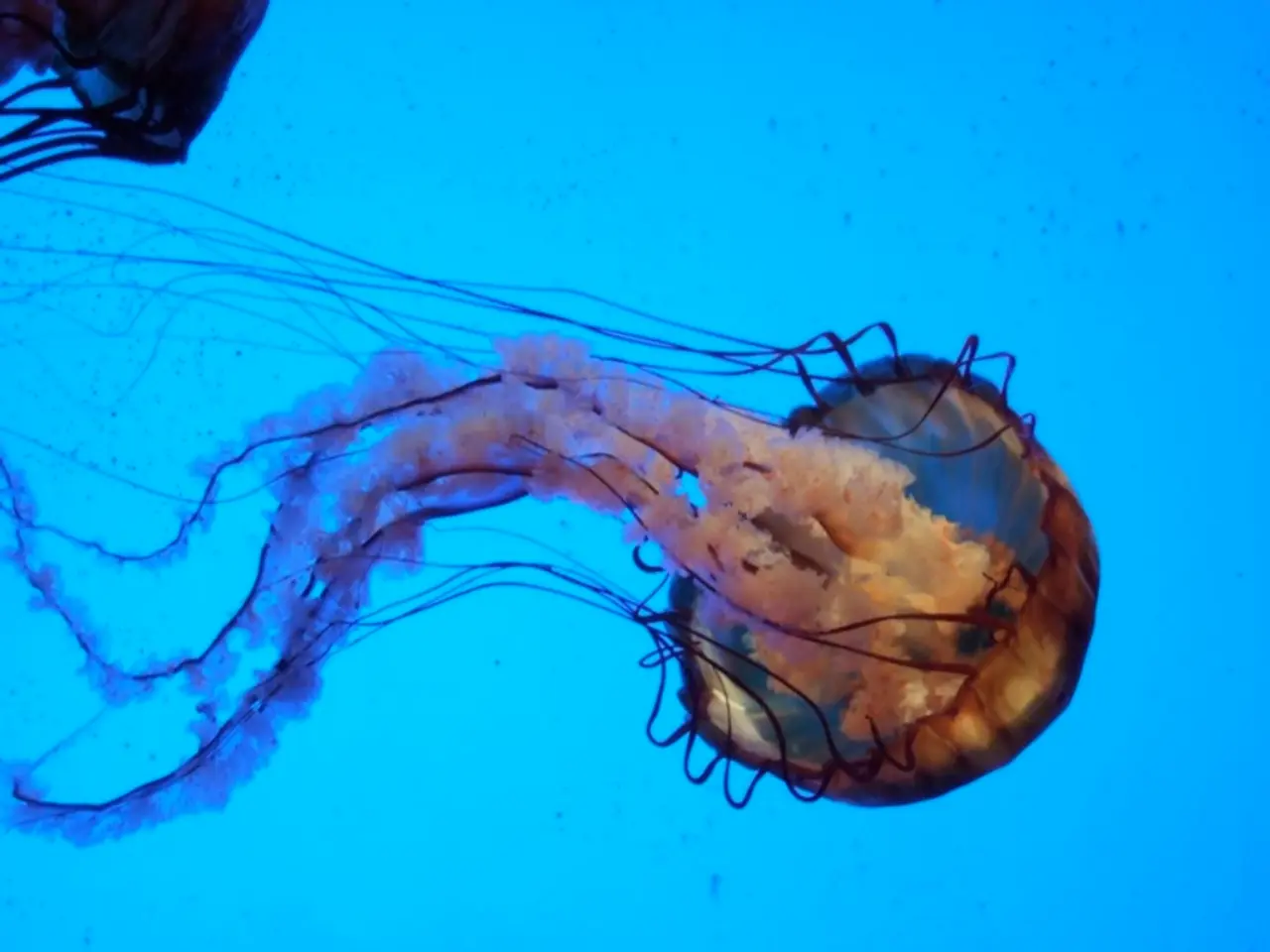Beach visitors in Phuket are alerted about the appearance of a 'blue dragon' following its recent spotting.
News Article: Blue Sea Slug, or "Blue Dragon," Spotted at Karon Beach in Phuket: A Cautionary Tale for Beachgoers
A rare sighting of a blue sea slug, also known as the "blue dragon," has been reported on Karon Beach in Phuket. This creature, not native to the region, was discovered washed ashore on Tuesday, prompting concerns from local authorities and a call for caution among beachgoers.
The Director-General of the Department of Disease Control (DDC), Panumas Yarnwetsakul, has highlighted the blue sea slug as a creature to be cautious about. Its presence may indicate a change in the marine ecosystem, and it is essential to understand the potential dangers it poses.
The blue sea slug is known to inhabit Phuket beaches, as evidenced by its recent sighting at Karon Beach. This carnivorous predator feeds on other venomous creatures, including the Portuguese man o' war. After consuming its prey, the blue sea slug stores the stinging cells (nematocysts) in the tips of its finger-like appendages, called cerata.
A blue sea slug sting can be more painful and dangerous than that of its prey and can provoke severe allergic reactions in sensitive individuals. The symptoms of a blue sea slug sting in humans commonly include intense pain, nausea, vomiting, acute allergic contact dermatitis (skin rash), erythema (redness), urticarial papules (hives), potential blister (vesicle) formation, and postinflammatory hyperpigmentation (darkened skin spots after healing).
Treatment advice for a blue dragon sting generally follows similar protocols to those for jellyfish stings. It is crucial to avoid touching the creature to prevent being stung, and if stung, not to rub the area, as this may worsen symptoms by triggering more venom release. Rinse the affected area with seawater (not freshwater) to help remove any remaining nematocysts without triggering their discharge. Remove tentacles or debris with a pair of tweezers carefully, avoiding direct skin contact. Use vinegar to inactivate nematocysts if applicable, though specific guidance for blue dragon stings may vary. Seek medical attention immediately, especially if systemic symptoms like nausea, vomiting, or allergic reactions occur. In severe cases, emergency treatment for allergic reactions or envenomation may be necessary.
Preventive recommendations include wearing protective clothing when swimming, avoiding swimming immediately after rain (which brings such creatures closer to shore), and heeding local warnings about the presence of venomous sea creatures like blue dragons or jellyfish. The warning is directed towards the public, particularly those allergic to jellyfish venom.
The DDC has issued a warning about the blue sea slug on Karon Beach in Phuket. Beachgoers are advised to exercise caution when swimming in Phuket waters, especially at Karon Beach, due to the presence of the blue sea slug. It is crucial to be aware of this potential danger and take the necessary precautions to ensure a safe and enjoyable beach experience.




